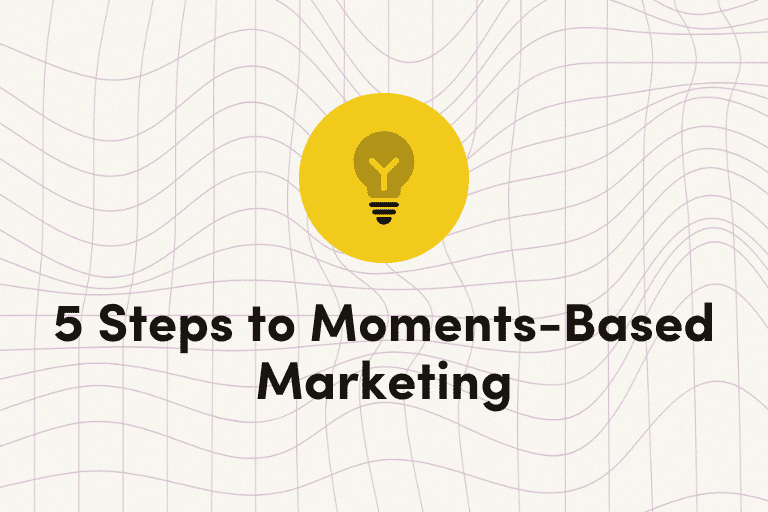You’ve laid the groundwork with a well-organized messaging strategy, assembled a rockstar team, and prepped your data to perfection. Now, the spotlight turns to the technical integration—one of the most critical phases in transitioning to a new platform. But how long will this take? This is a valid concern, considering that a lengthy integration can sap your productivity and undermine the migration progress you’ve made thus far.
Let’s explore how you can take charge of your technical integration by anticipating challenges and partnering with a platform provider that can help you streamline and expedite the process.
Scoping Your Technical Integration
No two technical integrations are alike, and the answer to how long it will take is invariably, “It depends.” Various factors come into play, making it impossible to offer a one-size-fits-all timeline. However, by focusing on key areas, you can mitigate risks and keep your integration on track. Here are four critical factors to consider:
1. Data Standardization
Data standardization is paramount. As discussed in Preparing Your Data for Migration, your data should ideally be well-organized and thoroughly documented before you start the integration. This preparation should be factored into your project timeline, as any necessary data cleanup will prolong the process. In a perfect world, your data is already neat and tidy, but if that’s not the case, ensuring it’s ready will save you time down the road.
2. Points of Integration
The complexity of your integration largely depends on how many systems need to be integrated. A straightforward integration involving a few API calls to a single back-end system will be quicker than a multi-faceted integration involving web platforms, back-end systems, and mobile apps. Your existing tech stack plays a crucial role here. If your current platforms are compatible with the new cross-channel marketing platform, the integration process will be much faster.
For example, if you already use a customer data platform (CDP) or a reverse ETL tool that consolidates data from various sources, you could drastically cut down on manual integration work, potentially turning weeks of work into mere days of setup and validation. The fewer systems you need to manually integrate, the smoother and quicker your transition will be.
3. Existing Code
Leveraging existing code can expedite the integration process. Your development team likely has pre-existing code for your current system that can be repurposed with minimal adjustments. For example, if your system already makes API requests to your existing marketing platform for user updates or tracking actions, this code can often be modified to work with the new platform’s API. By reusing code, you avoid starting from scratch and can significantly reduce the integration timeline.
4. Capability of Your Integration Team
The skill level of your integration team is a significant factor in how quickly the process will unfold. The more experienced and adept your team, the faster the integration. When planning your timeline, consider both the quantity and quality of resources you have available in-house. Additionally, assess the support you will receive from your new cross-channel marketing platform provider.
For instance, at Iterable, you’ll have access to a comprehensive support team, including Implementation and Technical Consultants, Solution Architects, Support Agents, and a Customer Success Manager. These experts provide guidance and support throughout the integration process, helping you maximize the value of your investment. When evaluating platforms, make sure to identify who you’ll be working with on the vendor side and understand how they will support your team.
Owning the Technical Integration
While it’s impossible to completely eliminate all obstacles, thorough preparation and proactive management can smooth the path. Here’s how you can take ownership of your integration process:
- Do Your Due Diligence: Conduct thorough research and vet potential platform providers. Understanding the capabilities and limitations of each provider will help you make an informed decision.
- Focus on Key Factors: Keep an eye on the critical factors that could derail your integration, such as data standardization, integration points, existing code, and team capability.
- Stay Organized: Maintain a clear and organized approach to data and messaging. This will help prevent confusion and keep the process moving forward smoothly.
- Leverage Support: Utilize the resources and support provided by your new platform provider. Their expertise and experience can be invaluable in navigating the integration process. New Iterable customers, for example, are provided with a comprehensive workbook to document their campaigns and design their data schema in a way that aligns with the Iterable platform.
Face Your Technical Integration Head-On
Owning your technical integration requires careful planning, a clear understanding of potential challenges, and the right support from your platform provider. By focusing on key factors, staying organized, and leveraging available resources, you can streamline the integration process and maintain the momentum you’ve worked hard to build.
With the right preparation and an understanding of potential blockers, you can confidently manage your technical integration and start running new campaigns in no time. The goal is to make the transition to your new platform as seamless as possible, allowing you to focus on what matters most: delivering exceptional experiences to your customers.
If you’re interested in switching to Iterable, schedule a demo today.
































